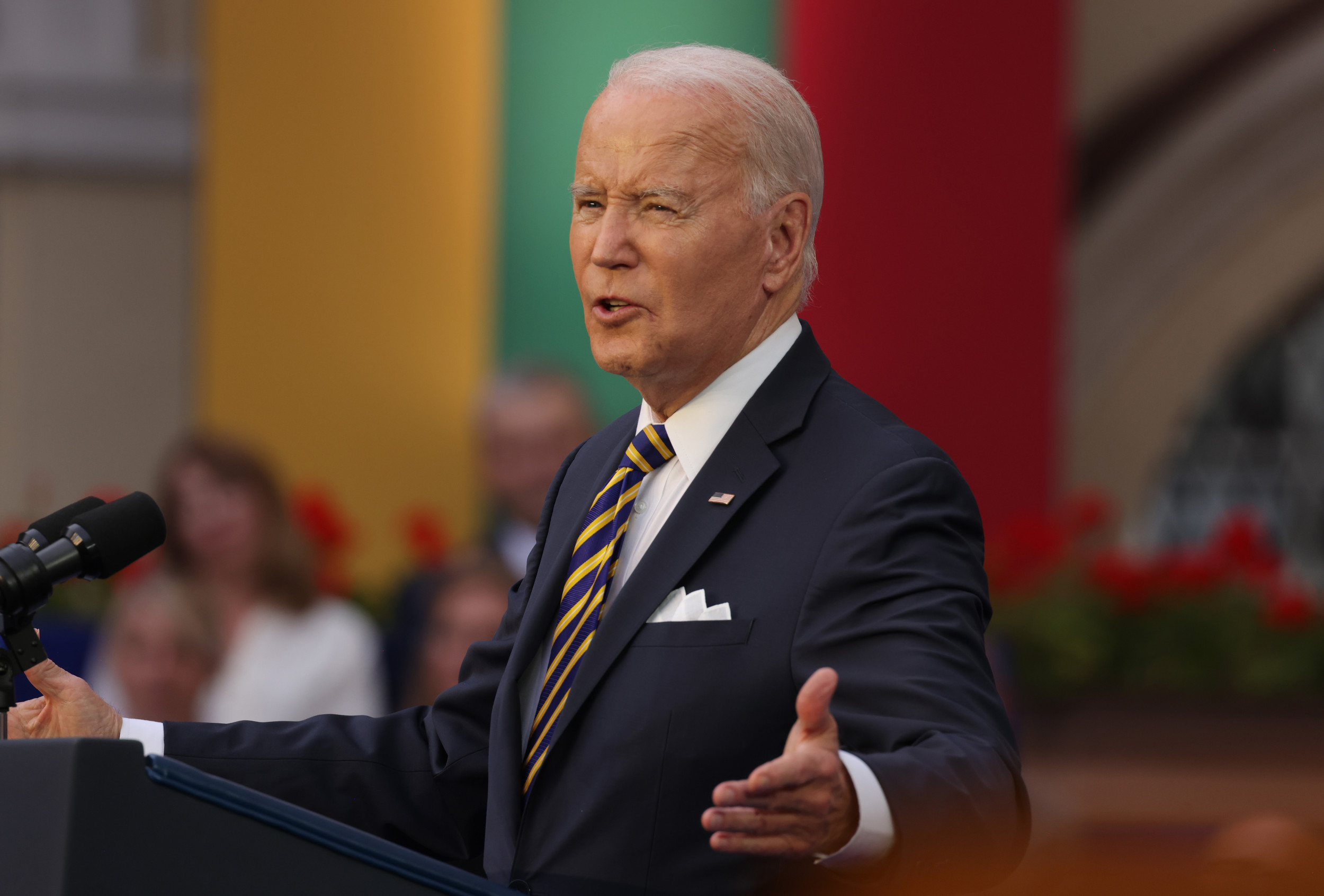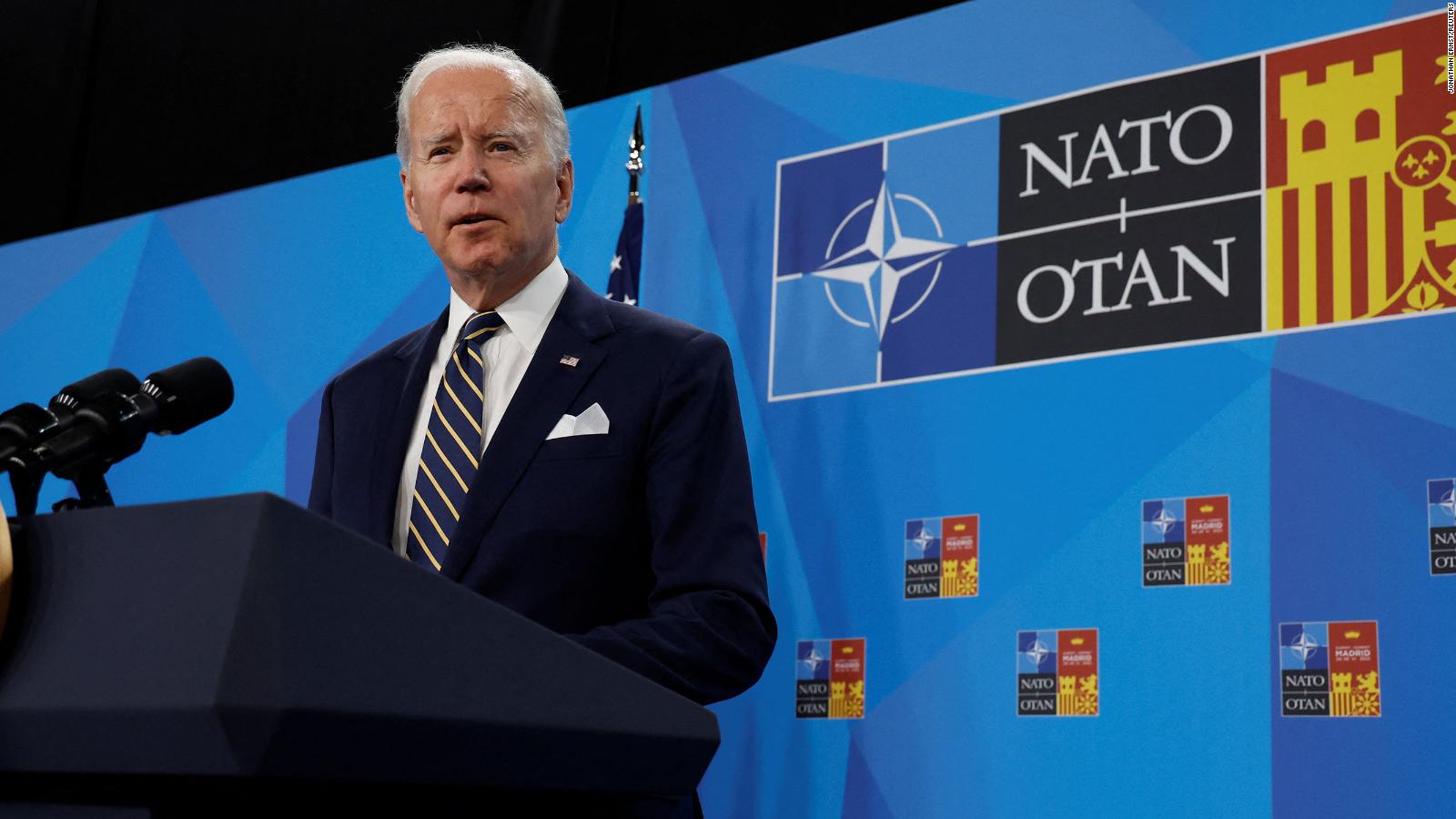Biden’s Role in NATO: Biden Nato
Biden nato – President Biden has played a significant role in shaping NATO’s policies and strategies since taking office in January 2021. He has reaffirmed the United States’ commitment to the alliance and has worked to strengthen NATO’s collective defense capabilities. Biden has also led NATO’s response to the Russian invasion of Ukraine, which has been the alliance’s biggest security challenge in decades.
President Biden’s recent press conference ( biden press conference ) shed light on his commitment to NATO and the transatlantic alliance. Biden’s unwavering support for NATO reflects his belief in the importance of collective security and the shared values that bind Europe and North America together.
As the world faces increasing challenges, NATO remains a vital platform for cooperation and coordination, ensuring stability and security for its member nations.
Biden’s Actions and Decisions
- Biden has increased the US military presence in Europe, including deploying additional troops and equipment to NATO member states.
- He has also increased NATO’s defense spending and has called on other member states to do the same.
- Biden has worked to strengthen NATO’s cyber defenses and has also called for the alliance to do more to counter hybrid threats, such as disinformation and cyberattacks.
- In response to the Russian invasion of Ukraine, Biden has led NATO’s efforts to provide military and financial assistance to Ukraine. He has also imposed sanctions on Russia and has called for other countries to do the same.
Significance of Biden’s Leadership
Biden’s leadership has been essential in strengthening NATO and in responding to the Russian invasion of Ukraine. His actions have helped to deter Russian aggression and have reassured NATO member states of the United States’ commitment to the alliance. Biden’s leadership has also helped to build a stronger and more united NATO, which is essential for the security of Europe and the United States.
Biden’s NATO summit has been met with mixed reactions. While some see it as a sign of renewed American leadership, others worry that it could lead to a new arms race. Senator Mark Warner has expressed concerns about the potential for escalation, arguing that the US should focus on diplomacy rather than military buildup.
Despite these concerns, Biden has reaffirmed his commitment to NATO, emphasizing the importance of collective security in the face of Russian aggression.
NATO’s Response to Biden’s Presidency

Under President Biden’s leadership, NATO has undergone significant changes in its approach to collective defense and global security. Biden’s emphasis on multilateralism, commitment to democratic values, and focus on addressing emerging threats have shaped NATO’s response to the evolving international landscape.
NATO has adapted to Biden’s agenda by prioritizing collective defense, strengthening its partnerships, and addressing non-traditional security challenges. The alliance has increased its military readiness, enhanced its cyber and hybrid warfare capabilities, and strengthened its cooperation with partners such as the European Union and the United Nations.
Challenges and Opportunities, Biden nato
Biden’s presidency has presented both challenges and opportunities for NATO. The ongoing war in Ukraine has tested the alliance’s unity and resolve, while also highlighting the importance of collective defense. NATO has responded by providing military and financial support to Ukraine, imposing sanctions on Russia, and increasing its military presence in Eastern Europe.
At the same time, Biden’s emphasis on addressing climate change and other non-traditional security challenges has created opportunities for NATO to adapt its mission. The alliance has established a new Climate and Security Center of Excellence and is exploring ways to contribute to global efforts to combat climate change.
Effectiveness of NATO’s Response
The effectiveness of NATO’s response to Biden’s initiatives has been mixed. While the alliance has made progress in strengthening its collective defense and addressing emerging threats, it has faced challenges in maintaining unity and coordinating its response to complex issues such as climate change.
NATO’s response to the war in Ukraine has been widely praised for its speed and effectiveness. The alliance has provided significant military and financial support to Ukraine, imposed tough sanctions on Russia, and increased its military presence in Eastern Europe. This response has helped to deter further Russian aggression and support Ukraine’s defense efforts.
However, NATO has faced criticism for its handling of non-traditional security challenges such as climate change. Some critics argue that the alliance has not done enough to address the security implications of climate change and that it should play a more active role in global efforts to combat this threat.
Overall, NATO’s response to Biden’s presidency has been positive. The alliance has adapted to Biden’s agenda, addressed emerging threats, and strengthened its partnerships. However, challenges remain, and NATO will need to continue to adapt and evolve in order to meet the security challenges of the 21st century.
Future of NATO under Biden’s Leadership

Under Biden’s presidency, NATO’s long-term goals may undergo some adjustments. The alliance will likely prioritize strengthening its collective defense capabilities, particularly in light of Russia’s recent aggression in Ukraine. Additionally, NATO may focus on enhancing its partnerships with other international organizations, such as the European Union, to address common security challenges.
Areas of Adjustment and Evolution
Biden’s leadership may necessitate adjustments in NATO’s approach to various issues. For instance, the alliance may need to reassess its relationship with Turkey, a member state with a complex geopolitical position. Furthermore, NATO may consider expanding its membership to include countries such as Ukraine and Georgia, which have expressed interest in joining the alliance.
Opportunities and Challenges
Biden’s presidency presents both opportunities and challenges for NATO. On the one hand, his commitment to multilateralism and transatlantic cooperation could strengthen the alliance and enhance its ability to address global security threats. On the other hand, NATO may face challenges in maintaining unity and cohesion amid geopolitical tensions and differing national interests among its member states.
